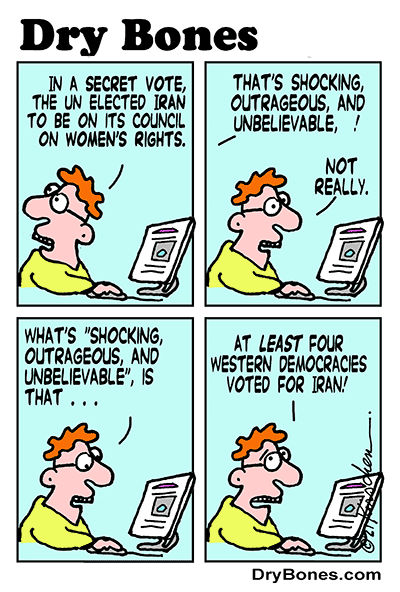Amid COVID, Israel enters top 20 club of nations with highest GDP per capita
For the first time in its history, Israel ranks among the top 20 economies based on GDP per capita, Forbes Israel reports, based on International Monetary Fund data.French Magazine Devotes Cover Story to ‘Post-COVID’ Israel
GDP per capita breaks down a country’s economic output per person and is a global measure for assessing the prosperity of nations. Small, rich countries and more developed industrial countries tend to have the highest per capita GDP.
According to the data compiled by the publication, with GDP per capita of $43,689 for 2020, Israel ranked 19th out of the top 20, above No. 20 Canada, with per capita GDP at $43,278; No. 21 New Zealand, with $41,127, and the UK with $40,406 at No. 22.
Luxemburg tops the ranking with GDP per capita of $116,921, followed by Switzerland, with $86,849, and Ireland with $83,850. Norway comes in fourth at $67,176, and the US fifth, at $63,416, the data showed.
In 2019, Israel ranked 21st, and a decade ago it wasn’t even in the top 30 leading economies, Forbes said. In 2010, Israel was ranked 32nd globally for per capita GDP.
Israel seems to be emerging from its battle against the deadly coronavirus pandemic with a battered economy and massive unemployment, but still in better shape than other developed nations. The nation’s gross domestic product shrank by 2.5% in 2020, its worst contraction on record, compared to an average 6.6% drop last year for the European Union, a 3.5% decline in the US, and a 5.5% contraction on average in OECD countries.
Israel’s success in beating back the COVID-19 pandemic continues to attract attention in international media outlets and this weekend, the French magazine Le Parisien devoted a cover story to Israel as an example of life “after” COVID.Jews, Muslims in Gulf hold festive event as holidays coincide
The feature article, which interviews numerous Israelis and includes colorful descriptions of a busy Tel Aviv and Israel’s unprecedented national vaccination operation, is titled “A Taste of Life After [COVID].”
“Tel Aviv is no longer hiding its face behind a mask. It is now open to the air and to people on the street, even though sometimes a mask hides under a chin,” the article informed readers.
The article attributed Israel’s success to its digitized healthcare system, the relative discipline of its population, and efforts by Israeli Prime Minister Benjamin Netanyahu, who the magazine said “Fought tooth and nail for the vaccines … harassing the Pfizer CEO 30 times with phone conversations into the night.”
A separate article posted on the magazine’s website reported that Israel had marked the first day in months without a single COVID-19 fatality and said that since January, Israel had the lowest percentage of serious COVID-19 cases in the world.
A joint interfaith event celebrating both the Jewish holiday of Lag B'Omer and the daily breaking of the fast in the Islamic holy month of Ramadan (Iftar) will be held this week in Dubai, marking the first occurrence of such a collaboration. The event was announced by the Association of Gulf Jewish Communities (AGJC), the people-to-people network of Jewish communities from the Gulf.In biggest-yet Israel-UAE deal, Delek to sell stake in Tamar gas field for $1.1b
"The event will include a panel discussion with Jewish and Muslim ambassadors focusing on how interfaith and co-existence is propelling the GCC region forward," the organization said.
Israel, the UAE and Bahrain have recently signed peace deals known as the Abraham Accords as part of a larger normalization process orchestrated by the Trump administration in 2020. This has paved the way for official ties between Israel and those countries, as well as with Morocco and Sudan, and has improved Arab-Jewish relations in the region.
During the event, the AGJC will host a webinar moderated by the American Jewish Committee's International Director of Interreligious Affairs Rabbi David Rosen featuring Ambassador of the Kingdom of Bahrain to the United States Abdulla Rashed Al Khalifa; Ambassador of the United Arab Emirates to the United States Yousef Al Otaiba; and Ambassador Marc Sievers, who is the former Ambassador of the United States to the Sultanate of Oman. Bahrain's Ambassador Houda Nonoo will speak during the program as well.
"Both Sefirat HaOmer and Ramadan share a common theme as they are a time for reflection. As we celebrate the Lag B'Omer holiday and Iftar dinner together as the AGJC with our Muslim neighbors, it's a time for us to reflect on where the region is today and the role that interfaith diplomacy has played in getting us here," AGJC's Rabbi Dr. Elie Abadie said in a statement.
"Interfaith dialogue and co-existence is the catalyst for change in the Gulf and it was very important for us to host a program during this time when both Jews and Muslims celebrate holidays in order to further this important conversation," AGJC President Ebrahim Dawood Nonoo added. "Living in the Gulf, we are blessed to share and experience many holidays with our Muslim neighbors and to host them at our tables for our holidays. This virtual celebration will continue to bring us all together."
Israeli energy giant Delek Drilling announced Monday that it had signed a memorandum of understanding to sell its entire stake in Israel’s Tamar offshore gas field to the Abu Dhabi government-owned Mubadala Petroleum, potentially handing the United Arab Emirates a major share in one of the Jewish state’s key strategic and economic assets less than a year after the countries established diplomatic ties.
The deal for the 22 percent stake is worth $1 billion, with an additional $100 million conditioned on certain terms and goals being met, according to a notification about the agreement sent by Delek Drilling to the Tel Aviv Stock Exchange and the Israel Securities Authority. The companies said they aim to finalize the deal by May 31.
If completed, the deal will be the biggest commercial agreement made so far since Israel and the UAE signed a normalization pact in August 2020, brokered by former US president Donald Trump.
“This transaction has the potential to be another major development in our ongoing vision for Natural Gas commercial strategic alignment in the Middle East, whereby Natural Gas becomes a source of collaboration in the region,” Yossi Abu, CEO of Delek Drilling, was quoted as saying in the statement. “The development is not only a significant endorsement of the quality of the Tamar reservoir and the Levant basin but also a major support for the East Mediterranean Natural Gas sector.”
Under the terms of the so-called gas framework, drawn up by the Israeli government in 2015 to regulate the domestic natural gas market and allow a competitive and decentralized structure, Delek — owned by tycoon Yitzhak Tshuva — was required to sell off its non-operated stake in Tamar by the end of 2021.

































.jpg)





